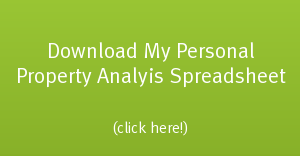
I’ve got some bad news for you: There is a major problem with your goals.
No, it’s not that you don’t have any — I’m sure you do. The problem is, they are not big enough. You’ve relegated your ambitions to the kids’ table, and your future-self is begging you to reconsider.
Remember when you first jumped into entrepreneurship? Your goal wasn’t to see a 10 percent increase in sales during the next fiscal year. Your goal wasn’t to talk to ten more sales clients per week. Your goal wasn’t to bump up your net worth by 5 percent this quarter.
Your goal was to become a rock star and change the world. Your goal was to make millions, improve your networth by 10,000 percent, to make a real dent in the universe. But somewhere along the way, you decided to get “SMART.”
SMART goals have a problem.
I’m sure you’ve heard about setting “SMART” goals. This acronym, used in numerous industries to help people create better goals, stands for:
- Specific
- Measurable
- Attainable
- Relevant
- Time-bound
While we all generally agree that all five parts of a “SMART” goal are wise, it’s your interpretation of the “attainable” goal that is killing your potential. “Attainable” has become synonymous with “safe.” It’s been defined as “easy to obtain” rather than “what’s possible when stretched.”
You started your journey reaching for the stars, but soon discovered that the stars are an awfully long way away, so you decided that a more “reasonable” goal would be better. After all, you don’t want to miss your goal and let down your team, your family and yourself.
Related: Why I Set Highly Ambitious Goals for My Real Estate Business (& Why You Should, Too)
You set “reasonable” goals only because you lacked the courage to tackle the big ones.
Small goals = small thinking.
The problem with small goals is that they encourage small thinking. (Tweet this quote!)
For example, in my real estate investing business, I spent years trying to buy two properties a year. I believed that the goal of two properties per year was reasonable and I would be able to accomplish this goal. And guess what? I usually did.
(Continue reading on BiggerPockets…)
P.S. looking for hard money loans in California? Be sure to check out my friends over at northcoastfinancialinc.com. They have very competitive rates, can fund within a week and specialize in fix and flip loans and other hard money loans.









 If this is your first time here at Real Estate In Your Twenties.com - welcome!
If this is your first time here at Real Estate In Your Twenties.com - welcome! 





